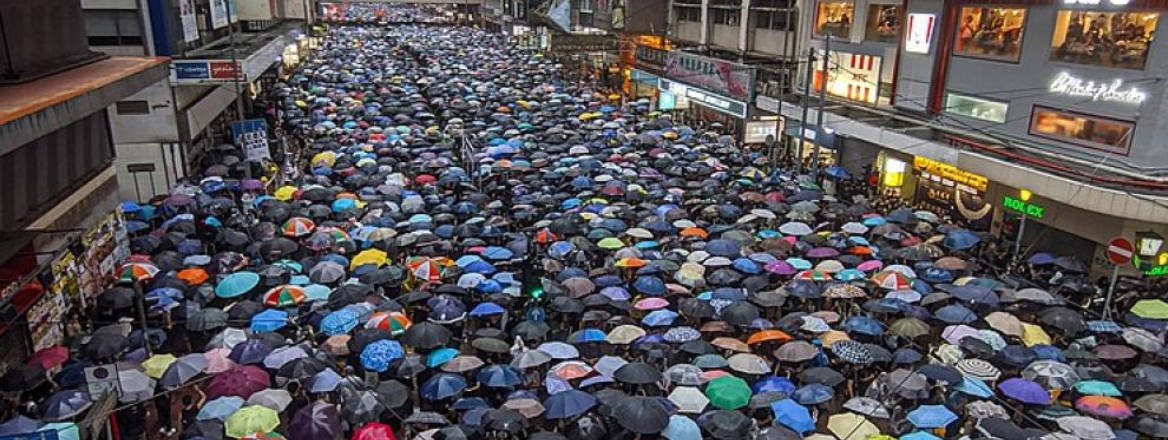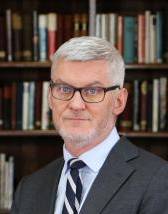Ukraine Talks: A Peaceful Outcome or a Peaceful Sellout?
The forthcoming French-sponsored summit to resolve the Ukraine conflict may provide some diplomatic opportunities, but could also come at a high strategic price.
After nearly three years of stalled talks, members of the so-called Normandy Contact Group – the diplomatic mechanism created in June 2014 to resolve the Donbas conflict in eastern Ukraine and comprising the leaders of Germany, Russia, Ukraine and France – are gathering in Paris on 9 December. The summit takes place against the backdrop of a conflict that has already claimed the lives of over 13,000 and created more than 1.5 million internally-displaced persons, on top of immense material damage.
Reinvigorated Diplomatic Moves
New momentum in the talks has come with the election of Volodymr Zelensky as Ukrainian President earlier this year. Surveys show that after five years of the conflict, a clear majority of Ukrainians want to see an end to the war. At his May 2019 inaugural address, Zelensky presented peace talks with Russia as his top priority.
In the early autumn, Ukraine indicated that it was prepared to commit to the ‘Steinmeier formula’ to resolve the Donbas conflict. Russia demanded that Ukraine accept this approach before any continuation of the Normandy format peace talks. Prior to the election of President Zelensky, the Ukrainian leadership had refused to endorse the Steinmeier proposal.
The Steinmeier formula emerged in 2016 as a proposal by Frank-Walter Steinmeier – then Germany's foreign minister, now its federal president – to break the diplomatic deadlock around the Donbas conflict. Steinmeier proposed a simplified version of the Minsk I and II agreements, which were agreed in 2014 and 2015 to stop the conflict but which only succeeded in de-escalating fighting.
The Steinmeier formula envisages holding free elections in the two breakaway territories – the Donetsk People’s Republic (DPR) and Luhansk People’s Republic (LPR), observed and verified by the Organisation for Security and Cooperation in Europe (OSCE), and the reintegration of those territories into Ukraine with a special status.
On 1 October 2019, Ukraine, Russia, the DPR, LPR, and the OSCE signed an agreement to commit to the Steinmeier formula, thereby opening the way to the summit. Subsequently, a set of choreographed measures have taken place to build confidence. In mid-November, Russia returned three Ukrainian naval vessels it had seized a year previously off Crimea. Most significantly, Kyiv and Moscow have agreed that Ukrainian and Russian-backed forces would withdraw from three frontline flashpoints in eastern Ukraine.
President Zelensky’s Constraints
However, the current summit entails many risks. Within Ukraine, Zelensky’s commitment to the Steinmeier formula has been controversial. While the move has put pressure on Russia to deliver on its commitments, Zelensky has faced criticism from Ukrainian mass media, civil society, war veterans and nationalists that he is too eager to meet President Putin and to acquiesce to Russia’s conditions. Zelensky’s apparent willingness to discuss the issues of elections and status before a real ceasefire has been put in place and Russia-backed forces withdrawn, and while Ukraine has yet to regain control of its border, has attracted particular criticism. Zelensky has been accused of lacking a thought-through concept of how to end the war without establishing Donbas as a Russian proxy within Ukraine.
In response to the criticism, Zelensky has been forced to adopt a cautious line on the negotiations. He has sought to downplay expectations of the summit, indicating that his main objective in Paris will be to focus the negotiations on the identification of four issues he wants to raise at the meeting — an exchange of prisoners, a ceasefire, a restoration of Ukraine’s control over the Ukraine-Russia border, and holding local elections in rebel-held territories.
The proposal to hold elections in the breakaway territories is especially controversial. There are fears that elections will lead to the legitimation of Russia-backed forces in Donbas. Zelensky has said elections will be held under Ukrainian law and only after Ukraine regains control over the disputed territory and its border, and after Russian forces are withdrawn. With much of the two regions’ population displaced across Ukraine, and those remaining closely aligned with Russia, there are doubts about the practicalities and outcome of such an election. Even in the unlikely event of a Russian military withdrawal, the territories would remain under the influence of the Russian-backed paramilitary groups and with Russian control of the information space. Surveys suggest that much of the remaining population would prefer to live in Russia, which Zelensky contests.
A second area of concern is the creation of a special self-governing status for the breakaway territories, especially if elections lead to the creation of pro-Russian local governments. In other parts of the former Soviet Union, notably Transnistria in Moldova and Abkhazia and South Ossetia in Georgia, Moscow has used the creation of semi-detached regions to exert long-term control over its neighbouring countries. The establishment of self-governing regions in Ukraine thus risks locking Ukraine into federal arrangements that effectively grant Moscow a key role in Ukraine’s decision-making and, most likely, with a veto, via its proxies, on Ukrainian foreign and security policy.
Zelensky has indicated that a new law on special self-governing status for the Donbas will not cross any ‘red line’ and that ‘there will be no capitulation’. In April, Russia introduced a simplified procedure for granting Russian passports to the population in the Donbass region, which was condemned by the European Union as “another attack on Ukraine’s sovereignty by Russia”.
Concerns about the consequences of implementing the Steinmeier formula on Ukrainian sovereignty have been compounded by the lack of political unity in the transatlantic community. In 2014, the UK and the US made a strategic mistake and did not join the Normandy Group, although it is also fair to point out that no such invitation has been issued by either Germany or France. Still, in both Washington and London, there is concern that Paris and Berlin have been too ready to pressure Ukraine to make concessions.
The Broader Dangers
And this is especially so since France appears to view settlement of the Ukraine conflict as key to a broader strategic shift in European security. In recent weeks, President Macron has claimed that Russia is not NATO’s enemy, and that there is a need to build better relations with Moscow to prevent the formation of a Sino-Russian alliance. These comments have raised fears that Macron is ready to make major concessions to Russia as part of a grand bargain on European security. In such a scenario, Ukraine risks becoming a part of a Russian sphere of influence or a buffer state.
In all likelihood, the Paris summit will only result in marginal steps along the path set out in the Steinmeier formula. Nevertheless, the restart of talks on Donbas comes at critical moment for security in Ukraine and the wider region. The US has marginalised itself due to the ‘Ukrainegate’ scandal. The UK is giving little focus to the country while it is consumed by national elections and Brexit. The transatlantic community is thus presenting a fragmented and increasing contradictory approach.
A settlement of the Donbas conflict on the basis of the Steinmeier formula is likely to leave Ukraine in a substantially weaker position in regard to Moscow, and further shift the balance of power in the Black Sea region toward Moscow. If the Normandy format continues to falter in its approach to resolving the Donbas conflict, the Transatlantic community should adopt a new common approach, built around engagement by the US and the UK alongside France and Germany, to increase pressure on Russia to end its military support for the Donbas conflict.
Neil Melvin is Director, International Security Studies at RUSI.
The views expressed in this Commentary are the author's, and do not represent those of RUSI or any other institution.
WRITTEN BY
Dr Neil Melvin
Director, International Security
International Security


